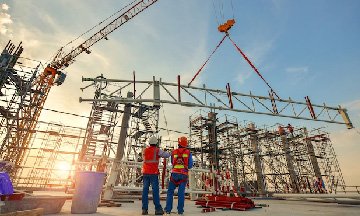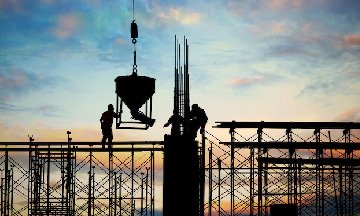Advanced Concrete Technology Training Course
Course Overview
Why is concrete technology important?
Over the years, concrete technology has shown some tremendous improvement to ensure less premature deterioration of structures made of concrete. This could sometimes lead to catastrophic endings. Without the improvement and advancement of technology, the concrete deterioration prematurely will continue to create a colossal of weak. It is likely to fail ageing concrete structures. Therefore, Zoe offers advanced concrete technology techniques to improve and even, in some cases, exceed the expected service life of concrete structures using modern technology. The concrete structure created using advanced technology should withstand harsh environmental conditions while at the same time reducing the maintenance and repair costs. To achieve this, a solid understanding of various utilisation of technology and how it interacts with concrete to build structures that withstand harsh conditions.
The popularity of concrete across the globe makes it an element of interest in the building industry. To improve its properties, there have been advancements in technologies in the material science field to give new improved mixtures and materials that dramatically improve quality and reliability when mixed with concrete. When mishandled, these materials can have more negative impacts than benefit and, therefore, requires this training to get a better understanding of how these materials can be used effectively.
What does a concrete technology course teach?
This course will give deep knowledge and skills required to use concrete technology in building durable and sustainable structures. Detailed considerations have been given to chemical mixtures, mineral addition, workability and strength enhancement of concrete, and maintaining the durability of concrete. It will also guide the decision-making process when choosing the right concrete products, procedures, and test methods.
Some of the highlighted parts will be:
- Mixture design
- Mineral additions
- Transporting concrete
- Performance field tests
- Control tests
- Concrete handling
- On-site testing
Course Objectives
This course intends to help the participants to be able to:
- Use advanced techniques in standards and codes
- Familiarise with new concrete technology
- Handle capably the design of CFRP for concrete strengthening
- Understand deeply advanced materials used in concrete construction
- Explain and apply the use of high-strength concrete (HSC)
- Explain with a great understanding of the new materials being utilised in the concrete industry
- Understand how the new materials are being utilised to enhance concrete durability
- Know how to use carbon fibre reinforced polymer (CFRP) in structures built using concrete
- Understand High-performance concrete (HPC)
- Get a detailed understanding of how advanced methods are being used in construction
- Corrosion protection in a modern way
- Get a deeper understanding of Self-consolidating concrete (SCC)
Training Methodology
This Zoe course will be delivered by professionals with vast experience both in teaching and their area of expertise. Different methods will be used, such as notes, lectures, presentations, and short videos. Case studies and exercises will also be used when there is a need. An effective and well-designed method of teaching developed by Zoe Talent for high retention will also be used.
All the participants are highly encouraged to be engaged by using the ‘Do-Review-Learn-Apply’ model. This ensures full retention of what participants are trained on.
Organisational Benefits
Organisations that will have professionals that have undertaken this course will benefit in numerous ways including:
- Improved methods and quality of concrete construction
- Optimised costs due to reduction in maintenance and repairs
- Improved credibility by undertaking durable constructions
- Reduced shutdown time for maintenance and repairs
- Cut down on time spent on construction by using enhanced concrete additives
- Better investments because of knowledge of enhanced materials and how they are used in concrete construction
- Better use of resources by having an effective structure along its lifetime
Personal Benefits
- Improved concrete maintenance skills
- Improved confidence and performance because of the concrete enhanced technology use
- A better understanding of material properties
- Creating optimised designs that will use advanced concrete technology
- Deep understanding of how to use modern and advanced technology and techniques
- Enhanced skills and capabilities to assume high-level roles and responsibilities above their current positions
- Greater potential to lead a concrete project
- Improved concrete technology exposure
Who Should Attend?
This course is suitable for the professionals listed below, but it is not in any way limited to them, anyone interested can take it up and reap its great benefits:
- Construction managers who would like to improve the quality of their work
- Civil engineers who would want to improve their design knowledge
- Project engineers to fully understand the benefits of advanced technologies
- Construction engineers who would wish to construct durable structures using concrete
- Structure engineers who would want to improve the strengths of their concrete structures
- Plant and facility engineers
- Design engineers
- Civil asset engineers
- Technicians and technologists
- Business owners
Course Outline
Module 1: Introduction to Advanced Technology
- Quality control as applied in concrete
- Construction practices and best practices in your local area
- Admixtures and special component materials
- Concrete design mix
- Hot weather handling for any concrete operations
- High-performance concrete
- High-strength concrete
- Standard and best practices in test methods for non-conventional concrete reinforcement
Module 2: Fundamentals of Concrete
- Fibres and reinforced concrete
- Factors influencing concrete properties
- Characteristics of concrete
- Approaches used to study concrete
- Concrete as a structural material
- Concrete water mixture
- Natural pozzolans
- Fly ash
- Placing and finishing concrete
- Aggregates for concrete
Module 3: Concrete Handling
- Special types of concrete
- Hot-weather concrete
- Control tests for concrete
- Curing concrete
- Air-entrained concrete
- Volume changes of concrete
- Mixing, batching, and transporting concrete mixture
- Hydraulic cement
Module 4: Corrosion and Advanced Technology
- Anodic inhibitor
- Technical specification for concrete and reinforcement
- Galvanized and epoxy-coated bars
- Standard testing for FRP rods
- Standard specification for Epoxy-coated bars
- Protecting concrete by using advanced materials
- Advanced concrete reinforcement
Module 5: Using Carbon Fibre Reinforced Polymer for Repair
- Advanced programs and schedule for inspection and repair
- Design of carbon fibre reinforced polymer philosophy
- Effective execution of the CFRP
- How to select reasonable materials
- Various repair and maintenance techniques using CFRP
Module 6: Advanced Technology for Concrete Repair
- Latex modification to repair concrete
- Production of latex
- Latex properties and application
- Well-defined process
- Concrete repair with fibre
- Convention repair methods to slab and beams
Module 7: Concrete Repair Materials
- Lightweight concrete
- Steel section application in latex modified concrete repair
- Concrete repair using rubber
- Existing structure evaluation
- Foundation concrete repair by use of new materials
Module 8: Advanced Cementitious Components
- Heavyweight concrete
- Polymer concrete
- Tube-reinforced concrete
- Shrinkage-compensating concrete
- High-strength cementitious composites
- Structural lightweight concrete
- Engineered cementitious composite
Module 9: Concrete Types
- Hardened Concrete
- Durability
- Stress-strain interdependence
- Constitutive equations
- Measuring strengths of any hardened concrete
- Structure concrete
- Introduction
- Setting and finding transition zones in concrete
- Microstructural Engineering
- Structural levels
- Fresh concrete
- Mix design utilised
- Workability of fresh concrete
- Delivery of fresh concrete
- Procedures and methods for mixed design
- Concrete placing techniques
- Manufacturing concrete
- Early-age properties of concrete
Module 10: Fracture Mechanics in Concrete
- Introduction
- Size effect model
- R-curve methods and techniques for quasi-brittle materials
- Crack Tip opening displacement
- Linear elastic fracture mechanics
- Nonlinear fracture mechanics and how it applies to concrete
- The crack Tip plastic zone
- Two-parameter fracture model
Module 11: Future Development
- Concrete use and its sustainability
- Development of tough and ductile concrete for use
- Unified service life design
- Hydration nature and its research
- Load-carrying capability
- Durability











